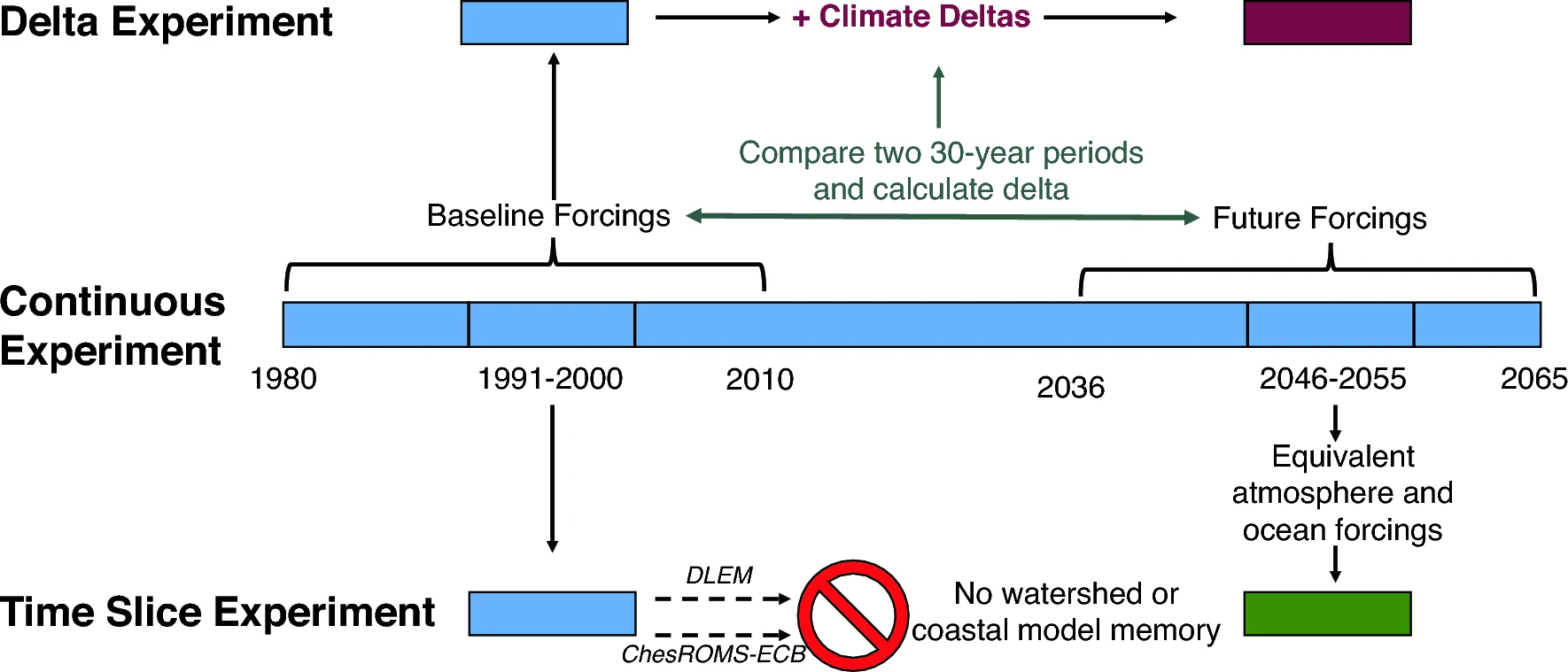Climate change is expected to reduce oxygen levels in the coastal zone, expanding existing hypoxic (low-oxygen) regions and creating new ones, causing substantial harm to coastal ecosystems like estuaries. Accurate projections of estuarine oxygen levels are necessary for developing management strategies that reduce the negative impacts of hypoxia. NCCOS-supported researchers investigated differences in future hypoxia projected by a regional model of the Chesapeake Bay using three different climate change scenario methodological approaches: continuous, delta and time slice simulations.

The Delta experiment corresponds to a 10-year experiment that retains the climatological pattern of baseline conditions in the future, where a climate delta is computed from the difference in the average annual cycle of a baseline and future 30-year period. The Continuous experiment is an uninterrupted simulation from 1980 to 2065. The Time Slice experiment represents a baseline and future simulation forced by the same conditions as in the Continuous experiment, but without any inclusion of years between these periods.
These three common approaches have substantial differences in the time needed to run the simulations and ability to incorporate short-term and multi-year variability over the longer time scales of climate change studies. Even with similar baseline and simulation parameters, results showed substantial differences in projected increases in hypoxia across the three approaches, indicating a need to carefully consider the assumptions involved with each. This can be especially relevant in systems with multi-year variability in precipitation intensity, duration, and frequency that affect nutrient loading and terrestrial biogeochemistry and ultimately downstream estuarine dynamics. Under these conditions, the continuous approach is preferred over the more computationally efficient delta method with the time slice method a reliable alternative when there is relatively little ecosystem memory.
This project was led by the Virginia Institute of Marine Science (VIMS) and supported through the NCCOS Coastal Hypoxia Research Program (CHRP).
Citation: Hinson, K.E., Friedrichs, M.A.M., Najjar, R.G. et al. Response of hypoxia to future climate change is sensitive to methodological assumptions. Sci Rep 14, 17544 (2024). https://www.nature.com/articles/s41598-024-68329-3
